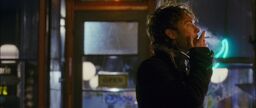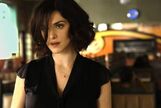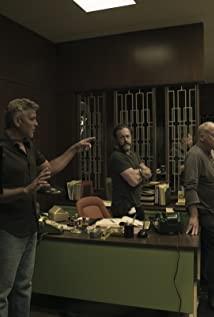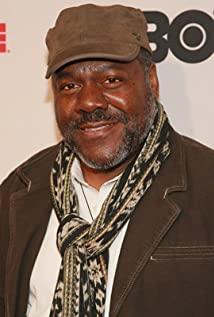Elizabeth kept saving until she could buy a car. Then she ended her long journey and walked back to the original coffee shop, to her blueberry prince. If the bus travel has a passive meaning of displacement, then your own car symbolizes the return of the self who has regained control of life. But no matter what, she still spent 300 days copying the farthest road, from one end of the New York street to the other, from a failed relationship to another possibility of happiness.
In Wong Kar Wai's genre films, you don't have to expect anything from the beginning, and you don't have to deliberately despise who has the shadow of who is who. Some people say that people can always see the shadow of themselves or their love in Wong Kar-wai's movies. Very simple, because love is like this, people often spend a long time and walk a lot of roads before they find happiness close at hand. This principle was said hundreds of years ago: the crowd searched for her thousands of times, and when I looked back, the person was there, where the lights were dim. For thousands of years, the love of all people is nothing more than a few bridges and several story modes, so don't bother to tell him how cliché it is, how illogical it is for Westerners to interpret this restrained oriental emotion .
But Petty Bourgeois is not talking about story logic, Petty Bourgeois is talking about "grey forest". Petty bourgeoisie is to infinitely magnify a little sesame emotion so that you will be filled with emotion at a certain moment, and then feel sorry for yourself. Wong Kar Wai is very smart, he never competes with Ang Lee in storytelling, he is obviously a visual school, a gray forest school. He took the picture sense, dubbing, and lines to the extreme, and used countless symbols to construct visual psychedelic puzzles, doors, keys, chips, blueberry cakes, journeys, bills... Under the dim light, the swaying small Emotions have become the whole of life and happiness in a narrow space. Yes, space. The whole movie feels extremely cramped. Even Elizabeth's long journey felt like she jumped from box to box. The narrowness of the narrative horizon has always been typical of Wong Kar-wai. It's about when a person is forced into a corner, has nowhere to escape, and can only face himself, he has a spiritual story. Wong Kar-wai's protagonist rarely takes the initiative to open his heart to experience life. Does he naturally dislike anything without a sense of mystery? Or is mystery the beauty? Either way, he teaches us to perceive the world in a purely emotional way, a slightly neurotic emotional pursuit. How to make the picture beautiful and full of tension, how to say extremely gray forest lines from the slightly neurotic protagonist, how to cut and combine space pictures, show feelings, illusions, and hallucinations are the expectations for Wong Kar Wai's new film .
What postmodernism emphasizes is the sense of space, because time is always linear, and narration based on time is outdated. Therefore, it is not Wong Kar-wai's preference to use time as a clue to tell a relationship. Only space can be broken, collaged arbitrarily, and recombined. The difficulty of finding true love lies not in how long you simply wait, but in how many journeys a person actually goes through before reaching this seemingly close target. The road is the distance in space, and it is also a metaphor for time. How far does a man have to walk to be called a man. How far a woman can go to forget a relationship. During this journey of self-imposed exile, I was collided with the hustle and bustle of dust and human affairs, and I began to gradually examine my own shallowness, forget the pain of the past, and learn to look forward to a new life. This is what we call growth. Wong Kar-wai is best at describing the painful experience at this moment, as well as the story of the mutual redemption and warmth of men and women, and then go on.
Probably the most classic metaphor in Blueberry Nights is about keys and doors, a question about the advance and retreat of the human heart. There is a story behind every set of keys. The door is a silent passive intention, the key is active. Give up the key, and the door will never be opened again. But sometimes even if you have the key in your hand, the person in the door leaves, and the only thing that opens is an empty door. It's like the bill in Leon's hand after Ani's death, and the straw hat in Leslie's hand after his father's death. What used to symbolize the existence of a person is now only a bleak memory. Sometimes you leave the door open, waiting for someone to knock, but no one comes, as if the blueberry cake that nobody cares about is not its own fault. Just waited too long, not noticing a gust of wind, and the door closed forever.
Jude Law said, I stayed where I was and waited for her to come back.
"I'm counting my sober chips, drinking here and waiting for her to come back," Ani said.
Leslie said my father was always trying to lie to me to come back, he just wanted me to stay with him.
Fortunately, fortunately, little Elizabeth came back before the door closed.
YOU STILL OPEN? she asked Jude Law. That sentence means a lot. But no one heard. Because it is not certain that some doors will wait forever, because the key in the hand, like a can of pineapple, will also have an expiration date.
Fortunately, fortunately, love is still there.
View more about My Blueberry Nights reviews










